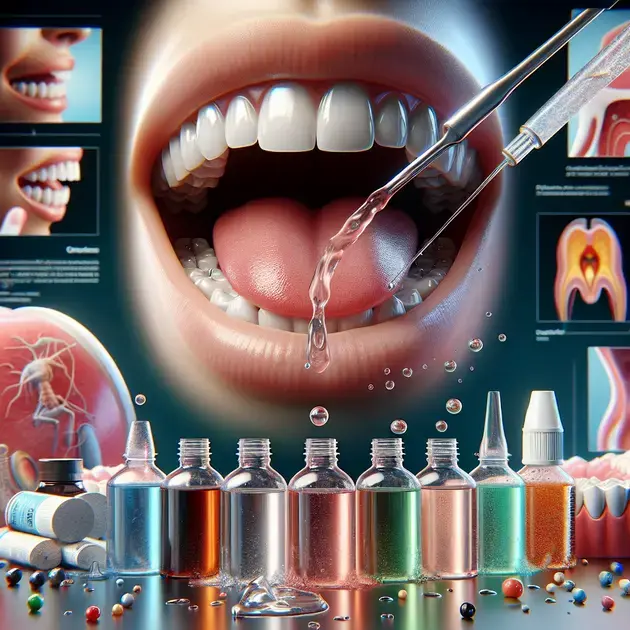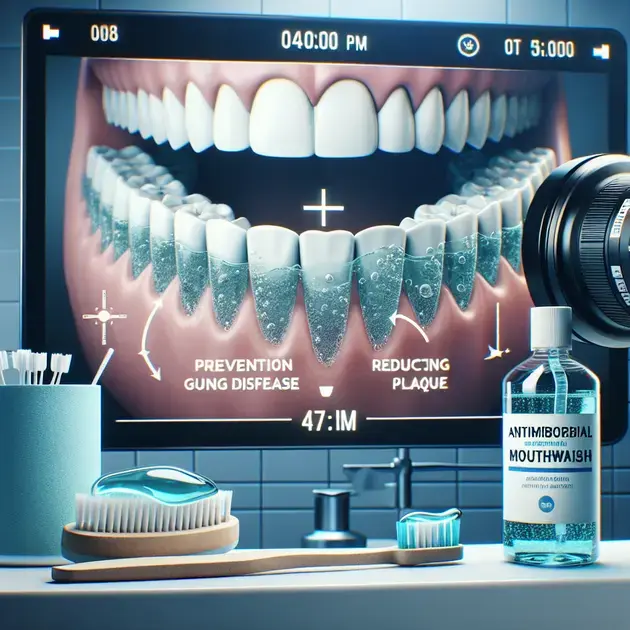Looking for effective medication for periodontitis? You’re in the right place! This comprehensive guide will walk you through the latest and most effective treatments for this common gum disease.
With new advancements in periodontal research and treatment options, individuals suffering from periodontitis now have a wide array of effective medications to choose from. From antimicrobial mouthwashes to systemic antibiotics, this guide will cover everything you need to know to combat periodontitis and restore your oral health.

Effective Medication Options for Periodontitis Treatment
When it comes to treating periodontitis, there are several effective medication options that can help manage the condition. One common medication used is chlorhexidine mouthwash, which is available over the counter or by prescription. To use chlorhexidine mouthwash, you should first brush and floss your teeth, then rinse your mouth with the solution for about 30 seconds. Avoid eating or drinking for at least 30 minutes after using the mouthwash to maximize its effectiveness.
Another medication option is prescription antimicrobial mouth rinses containing ingredients like cetylpyridinium chloride or essential oils. These mouthwashes can help reduce plaque and bacteria in the mouth, promoting better gum health. To access these prescription mouth rinses, you can consult with your dentist or periodontist who can provide a prescription for the specific product.
In some cases, your dentist may recommend antibiotic medications to help treat periodontitis. Antibiotics like doxycycline or minocycline can be prescribed to help control bacterial growth and reduce inflammation in the gums. These medications are typically used for a specific duration as directed by your healthcare provider to ensure optimal results.
It’s essential to follow your dentist’s recommendations closely when using medication for periodontitis treatment. Be sure to adhere to the prescribed dosage and duration, as well as maintain good oral hygiene practices to support the effectiveness of the medication in managing your condition.
Remember, medication options for periodontitis treatment should be used in conjunction with professional dental care, including regular cleanings and check-ups, to achieve the best outcomes in maintaining gum health.
Understanding the Benefits of Antimicrobial Mouthwashes
Antimicrobial mouthwashes play a crucial role in maintaining good oral hygiene and preventing conditions like periodontitis. These mouthwashes contain active ingredients that help reduce bacteria in the mouth, which can contribute to gum disease if left unchecked. One of the primary benefits of antimicrobial mouthwashes is their ability to target and kill harmful bacteria, promoting a healthier oral environment.
Many antimicrobial mouthwashes also offer additional benefits, such as freshening breath and reducing plaque buildup on the teeth. By incorporating an antimicrobial mouthwash into your daily oral care routine, you can help protect your gums from infection and maintain optimal oral health.
To reap the full benefits of antimicrobial mouthwashes, it’s essential to use them as directed by the product label or your dentist’s recommendation. Typically, you should rinse with the mouthwash for 30 seconds to 1 minute, ensuring it reaches all areas of your mouth. Avoid eating or drinking for at least 30 minutes after using the mouthwash to allow it to work effectively.
Antimicrobial mouthwashes are available over the counter or by prescription, depending on the specific formulation and concentration of the active ingredients. Consult with your dentist to determine the most suitable antimicrobial mouthwash for your oral health needs and incorporate it into your daily oral care routine for optimal results.
By understanding the benefits of antimicrobial mouthwashes and incorporating them into your oral hygiene routine, you can help prevent gum disease and maintain a healthy smile for years to come.
The Role of Systemic Antibiotics in Periodontitis Management
Systemic antibiotics may be prescribed as part of the treatment plan for periodontitis, particularly in cases where the condition is severe or has not responded adequately to other interventions. These antibiotics work by targeting and eliminating the bacteria causing the gum infection, helping to reduce inflammation and promote healing.
Before starting systemic antibiotics for periodontitis management, your dentist or periodontist will conduct a thorough evaluation to determine the most appropriate antibiotic regimen for your specific condition. Factors such as the type of bacteria involved, the severity of the infection, and your overall health will be taken into consideration when selecting the antibiotic medication.
Systemic antibiotics for periodontitis are typically prescribed for a specific duration, during which you will need to take the medication as directed to achieve the desired therapeutic effect. It’s essential to follow the prescribed dosage and schedule closely to maximize the effectiveness of the antibiotics in treating the gum infection.
While systemic antibiotics can be beneficial in managing periodontitis, they are usually used in combination with other treatment modalities, such as scaling and root planing or surgical intervention, to achieve optimal outcomes. Your dentist will work with you to develop a comprehensive treatment plan that addresses your individual needs and helps restore your gum health.
As with any medication, it’s essential to communicate with your healthcare provider about any potential side effects or concerns you may have while taking systemic antibiotics for periodontitis. By working closely with your dental team and following their recommendations, you can effectively manage periodontitis and support the long-term health of your gums.

**Understanding the Benefits of Antimicrobial Mouthwashes**
Introduction
Antimicrobial mouthwashes are oral hygiene products that contain ingredients specifically designed to target and kill harmful bacteria in the mouth. These mouthwashes offer a wide range of benefits beyond just freshening breath, including reducing plaque buildup, preventing gingivitis, and promoting overall oral health.
Key Benefits
One of the main benefits of using antimicrobial mouthwashes is their ability to combat bacteria that can lead to gum disease and tooth decay. By incorporating these mouthwashes into your daily oral care routine, you can effectively reduce the risk of developing these oral health issues.
Additionally, antimicrobial mouthwashes can help to alleviate bad breath by eliminating the bacteria that cause odors in the mouth. This can provide a confidence boost and improve social interactions.
Furthermore, these mouthwashes can assist in maintaining a healthy balance of bacteria in the mouth, which is essential for overall oral health. By keeping harmful bacteria in check, antimicrobial mouthwashes contribute to a cleaner and healthier mouth.
Usage Guidelines
For optimal results, it is recommended to use antimicrobial mouthwashes as part of a comprehensive oral hygiene routine that includes brushing and flossing. These mouthwashes should be used according to the instructions on the product label, typically after brushing your teeth.
It is important not to swallow antimicrobial mouthwash and to avoid using it in place of brushing and flossing. While these mouthwashes offer valuable benefits, they are most effective when combined with other oral care practices.
Regular use of antimicrobial mouthwashes can contribute to improved oral hygiene and help prevent various dental problems, making them a valuable addition to any oral care regimen.
Conclusion
In conclusion, antimicrobial mouthwashes play a crucial role in maintaining optimal oral health by effectively targeting and eliminating harmful bacteria in the mouth. By incorporating these mouthwashes into your daily oral care routine, you can benefit from their plaque-fighting properties and preventive measures against gum disease and tooth decay.
Moreover, the ability of antimicrobial mouthwashes to combat bad breath by eradicating odor-causing bacteria not only enhances oral freshness but also boosts confidence in social interactions. Additionally, these mouthwashes contribute to a healthy bacterial balance in the mouth, promoting overall oral hygiene and a cleaner mouth environment.
It is imperative to use antimicrobial mouthwashes in conjunction with regular brushing and flossing for maximum effectiveness. Following the usage guidelines and incorporating these mouthwashes as part of a comprehensive oral care regimen can significantly improve oral hygiene and reduce the risk of various dental issues, making them an essential addition to any oral health routine.



